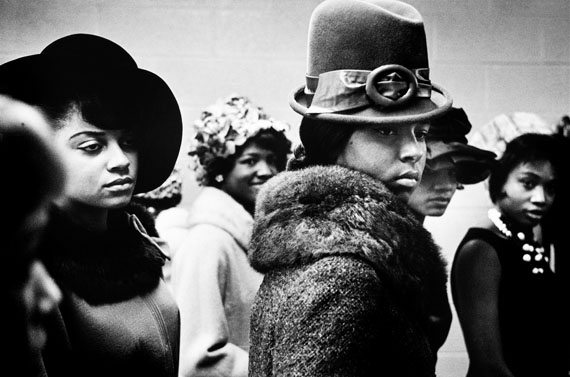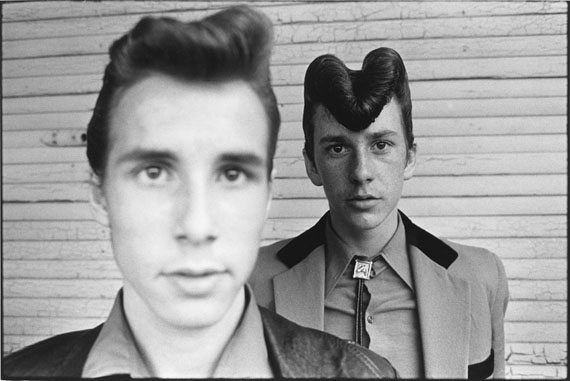
MAGNUM ANALOG RECOVERY
Eve Arnold » Micha Bar-Am » Bruno Barbey » Ian Berry » Werner Bischof » René Burri » Cornell Capa » Robert Capa » Henri Cartier-Bresson » Raymond Depardon » Elliott Erwitt » Leonard Freed » Paolo Fusco » Jean Gaumy » Burt Glinn » Philip Jones Griffiths » Ernst Haas » Hiroshi Hamaya » Erich Hartmann » David Hurn » Richard Kalvar » Josef Koudelka » Hiroji Kubota » Sergio Larrain » Guy Le Querrec » Erich Lessing » Herbert List » Danny Lyon » Constantine Manos » Susan Meiselas » Wayne F. Miller » Inge Morath » Gilles Peress » Marc Riboud » George Rodger » David (Chim) Seymour » Marilyn Silverstone » Chris Steele-Perkins » Dennis Stock » Kryn Taconis » Nicolas Tikhomiroff » Alex Webb »
Exhibition: 29 Apr – 27 Aug 2017

LE BAL
6, Impasse de la Défense
75018 Paris
+33 (0)1-44707550
contact@le-bal.fr
www.le-bal.fr
Wed 12-20, Thu-Sun 12-19

MAGNUM ANALOG RECOVERY
APRIL 29 TO AUGUST 27, 2017
LE BAL is presenting a range of the cooperative’s treasures with contemporary prints and designs for books and publications dating from the creation of Magnum Photos (1947) till 1977. This year marks both 70 years of Magnum Photos and the completion of an archive making thousands of contemporary prints at last accessible : Magnum Analog Recovery (M.A.R.).
This collection, stored in the Magnum archives in Paris in boxes and bearing the name of each of the photographers, brings together the “postcard” prints sent out to the European Magnum agents for distribution to the press between 1947 and the end of the 1970s. Yet this archive only contains a tiny fraction of the hundreds of thousands of prints distributed by the Paris office during those 30 years. Only in rare cases do the stored images bear captions and the typed texts and captions accompanying the images have not always been preserved. Great icons of the 20th century are to be found alongside images never previously seen or exhibited : they are part of a dialogue linked to what the photographers had to say regarding the definition or contradictions inherent in their work and what was at stake, at a time when the world’s largest ever collective of photographers was taking shape. Their words call to mind just as many contradictory approaches to photography as the images themselves – the other side of the coin strewn with doubts and tensions which makes this array of “witnesses to the transitory” more resonant than ever.
"The war is over. The four Magnum founding members all lost their job. They decide that they would create a brotherhood, a press agency that demands not to crop the pictures, not to change the captions, not to distort the photographer’s intention and that they should serve not one magazine but all magazines around the world : a grandiose scheme for unemployed photographers. "
— Cornell Capa

1947-1977: " THE PHOTOGRAPHER’S PROFESSION "
“The profession of photographer is being between a funambulist and a pickpocket."
— Henri Cartier-Bresson
The first thirty years of Magnum coincided with a turning-point in world history : the transition from a post-war world to a fractured one. This context is marked by a paradoxical evolution of the “photographer’s profession” within Magnum : the massive use of the relatively standardized forms found in published reporting in leading illustrated magazines (Life, Look, Picture Post) can be seen gradually re-inventing itself after the end of the 1960s, moving towards freer and more personal narrative forms, particularly in terms of books. This exhibition will deliver a highly subjective view of Magnum, far from the self-proclaimed myth – more ambiguous, more complex, more contradictory and less constrained.
— Diane Dufour
Curators of the exhibition : Diane Dufour with Julie Héraut At the occasion of Magnum Photo’s 70th anniversary, exhibition designed and produced by LE BAL and organized during Le Mois de la Photo Grand Paris
SEE ALSO
During the exhibition Magnum Analog Recovery, Paris Aéroport and LE BAL present "Magnum Journey", during june 2017 in Paris-Orly and Paris-Charles de Gaulle's terminals.
EDITION
To accompany this exhibition, LE BAL is bringing out a publication entitled Magnum Analog Recovery.
Like previous publications Lewis Baltz - Common Objects and Provoke, it has been devised by Diane Dufour and Pierre Hourquet (Temple).
Magnum Analog Recovery takes readers along an unusual route through the history of Magnum’s first 30 years from Robert Capa’s D-Day (1944) to Telex Iran by Gilles Peress (1979) : the range comprises 231 prints of that period from the Magnum Analog Recovery archive. This path – neither academic nor official – leads us through the mysteries at the heart of the Magnum cooperative. It is a sensitive journey through the upheavals of time. Reproduced in a file reminiscent of the archive boxes from which they came, these iconic 20th-century photographs are to be found side by side with numerous unpublished images by Henri Cartier-Bresson, Eve Armold, René Burri, Elliott Erwitt, Alex Webb and Gilles Peress. This interweaving of unique images, series and narratives has been achieved via juxtaposition of single pages or pamphlets, which sometimes open out into posters as the reader proceeds. What is made clear to the beholder from the start is played off against what may be revealed after more careful perusal. Attention is drawn to the research which goes on in the archive and which has brought to light treasured nuggets from Magnum and less frequently materials of a raw, but no less precious variety… Texts and quotations from the photographers (notes, extracts from correspondence or recorded conversations) punctuate the sequence and call to mind the approaches to photography to be found at the heart of Magnum, approaches that can sometimes be contradictory.
231 images 232 pages Black and White 32 quotations and documents April 2017 Available in French and English
On sale exclusively at LE BAL Books or online at www.lebalbooks.com �
